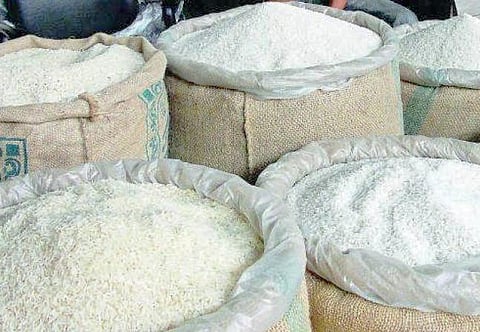

HYDERABAD: In response to the Central government’s plan to mandate the fortification of rice over the next few years to tackle anaemia, a team of researchers at the Indian Institute of Rice Research (IIRR), led by Principal Scientist CN Neeraja, have developed several biofortified rice varieties, including DRR Dhan 45, DRR Dhan 48, DRR Dhan 49, and the recent high zinc variety DRR Dhan 63. This variety has an average zinc content of 24.2 ppm in polished rice.
According to Neeraja, “In regular polished rice, the zinc level ranges from 10-12%, but in DRR Dhan 63, zinc levels are almost doubled at 24%. Likewise, the quality of protein, which is just 6% in polished rice, is improved to 10%.” DRR Dhan 63 is suitable for growing in kharif and rabi seasons under irrigated conditions and is moderately resistant to leaf and neck blasts, bacterial leaf blight, and planthoppers.
Neeraja believes that DRR Dhan 63, which is rich in zinc and protein, can help boost immunity and improve metabolism, particularly in growing children, lactating women, and women in menopausal stages. By consuming these rice varieties, people can naturally meet their daily zinc requirements. The goal behind developing these varieties is to introduce them in mid-day meal programs and the Public Distribution System (PDS) to enhance the nutrient value in diets. The researchers have cultivated these varieties in the fields of Mahabubnagar in a buy-back method and have seen favourable results.
However, these varieties are currently consumer-specific and do not offer special prices for farmers since segregation is difficult due to their similar appearance. Neeraja suggests that offering incentives to farmers, such as Rs 1,000 under the Indira Gandhi Krishi Vishwavidyalaya in Raipur, can encourage them to cultivate these biofortified varieties. There is also a need to create awareness and popularise these varieties among people and farmers.
Currently, DRR Dhan 63 is undergoing animal testing at ICMR-National Institute of Nutrition (NIN) to study its impact on rats. After the successful testing, the biofortified rice varieties will be supplied to government hostels in the state.